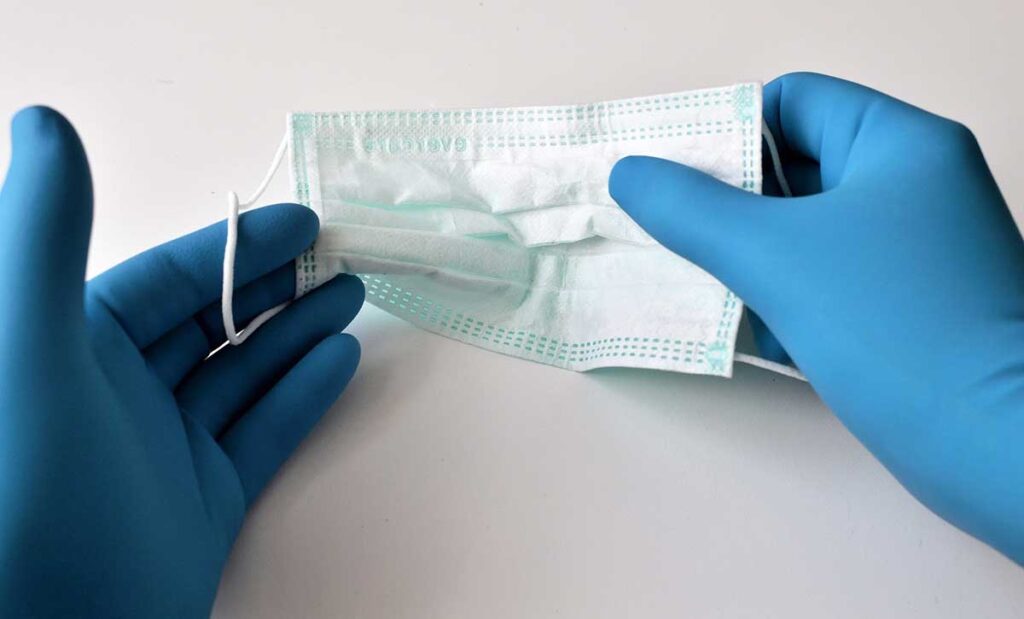Last Updated on November 14, 2023 by Cathy

Multiple sclerosis (MS) is not a fatal disease. Life expectancy is only slightly reduced. Fortunately, the majority of MS patients stay mobile. Only about 20% of patients are bedridden or institutionalized.
The cause of MS is due to chronic inflammation of the central nervous system. Chronic inflammation causes many serious health conditions, including:
- Alzheimer’s disease
- Autoimmune diseases
- Asthma
- Cancer
- Heart disease
- Stroke
- Type 2 diabetes
MS is known as an autoimmune disease that attacks the body’s immune system. It’s also known as a neurodegenerative disease. Which is a type of disease in which cells of the central nervous system stop working or die.
Neurodegenerative diseases include:
- Alzheimer’s disease
- Amyotrophic lateral sclerosis (ALS)
- Ataxia
- Huntington’s disease
- Motor neuron diseases
- Multiple sclerosis
- Parkinson’s disease
- Spinal muscular atrophy
The Central Nervous System

MS affects the brain and spinal cord. It damages the protective myelin sheath that protects the nerves. This can affect any part of the body’s tissues or organs leaving a person with severe chronic symptoms.
Damage to the myelin sheath causes a loss of communication between the brain and the rest of the body. This can lead to many neurological conditions such as:
- Balance issues
- Bladder and bowel issues
- Fatigue
- Numbness
- Poor concentration
- Vision problems
- Weakness
It’s estimated more than 2.3 million people worldwide have a diagnosis of MS. Nearly 1 million adults in the United States have MS, that’s more than double the last reported estimate of 400,000. There are about 200 new cases diagnosed each week in the U.S. alone. Three-quarters of MS patients are women.
There are four different types of MS which include:
- RRMS – Relapsing-Remitting, 85-90% first diagnoses
- SPMS – Secondary-Progressive, 80% of those who initially had RRMS
- PRMS – Progressive-Relapsing, approximately 10% first diagnosed
- PPMS – Primary-Progressive, the least common
Common Risk Factors for MS

Common risk factors associated with MS include:
- Genetics
- Infections like Epstein-Barr virus (EBV)
- Female
- Living further away from the equator (low vitamin D level)
- Poor gut bacteria
- Pollutants such as chemicals or smoking
- Stress/trauma
“Exposure to organic solvents, work shift, alcohol, high coffee consumption, infections, sun exposure/vitamin D and smoking were linked to MS disease development.” – PubMed
Geography was always thought to be a huge factor. The further away from the equator, a person lived the higher the risk for MS. However, Key West, Florida, which is closer to the equator, has an unusually high prevalence of MS.
A study in Canada showed MS prevalence differs according to the region. This suggests these differences may be due to environmental factors not to regions.
Vitamin D
Vitamin D (the sunshine vitamin) plays a vital role. There is a consistent finding in many studies that the risk of MS is higher in areas with low levels of sun exposure. Most people with MS have a vitamin D deficiency. Get your vitamin D level checked today!
Most people’s perception of MS is the patient is in a wheelchair and it’s fatal. This is not true for the majority of MS patients. MS patients live about six years less than the general population. They often die from the same conditions as people without MS such as cancer and heart disease.
“15 years after the onset of MS, only about 20% of patients are bedridden or institutionalized. Another 20% may require a wheelchair, or use crutches, or a cane to ambulate, but fully 60% will be ambulatory without assistance and some will have little deficit at all.“ – PubMed
Ask your doctor to get a vitamin D test. I get tested through Walk-In Lab, I found it to be more convenient and less expensive than going through my doctor.
I now use a plant-based vitamin D3 since the ocean is more polluted. This is the brand I use: Vimergy
DMTs
If you were to do an internet search you would find there is “no known cure” for MS. There are disease-modifying therapies (DMTs). But they are not able to stop the progression of MS. DMTs only slow the progression – if they work (they work about 30% of the time).
“A recent study is reporting that the Multiple Sclerosis (MS) drugs widely used to reduce relapses or MS flare-ups, specifically interferon beta, do not slow progression toward disability.” – Rowe Neurology Institute
DMTs do not address the root cause, they do not address the lifestyle factors that contribute to the onset of MS. Plus, they come with horrible side effects. Such as brain infection (PML), flu-like symptoms, heart and liver damage, and death.
“Conventional medicine often addresses autoimmune disease by powerful immune suppressing medication rather than searching for the cause. That’s like taking a lot of aspirin while you are standing on a tack. The treatment is not more aspirin or a strong immune suppressant, but removing the tack.” – Dr. Mark Hyman
Environmental Factors

Doctors often say nothing you did cause your MS. This isn’t true, if it’s mostly caused by environmental exposures then something caused it. Whether it was food, chemical toxins, infections, or stress it all adds up putting a huge burden on your body.
A recent study found Epstein-Barr virus is the main cause of MS. If you would like to learn more read:
Researchers found people with MS have an imbalance in their microbiome. This means they have more bad bacteria in their gut than healthy people plus they have a leaky gut. A leaky gut is where the gut lining begins to separate allowing toxins to pass into the bloodstream.
The intestinal barrier, gut microbiome, and immune system talk to each other. Known as the brain-gut axis. This is why your stomach can get upset when you’re nervous. This can then cross the blood-brain barrier.
“The cause of MS is multifactorial and include genetic predisposition together with environmental factors.” – PubMed
Gut Health and MS
Correcting the gut microbiome isn’t as easy as taking a probiotic. The problem is, that probiotics don’t change the microbiome in a strong and continuing manner. Probiotics do appear to be able to influence gut immunity and homeostasis. – Current studies are looking into probiotics as a possible treatment for MS.
A study released in January 2022 stated Epstein-Barr Virus (EBV) is the main factor in causing MS. If this is true then vaccines against EBV might lead to fewer cases of MS.
What causes MS?

What causes MS? – The cause of multiple sclerosis is due to genetic predisposition and mostly environmental factors. The main cause of MS is due to a virus – Epstein-Barr virus meaning:
Multiple Sclerosis is due to a Viral Infection!

Free Wellness Library!
Subscribe for free and I’ll send you the password to my secret library filled with many printables for your wellness journey.
Want to remember this health tip? Pin it to your Pinterest board!

Photos courtesy of Pixabay.
What is Multiple Sclerosis?





